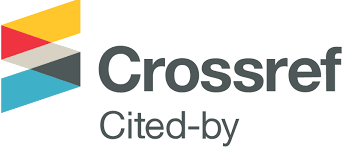Extended Abstract: Emmaus is an international solidarity movement established in Paris in 1949. Presently operating in 41 countries, Emmaus generates income through recycling, reuse, and upcycling activities, thereby serving as an instrument for social transformation. In Emmaus' recycling centers, donated surplus items are offered at affordable prices, with revenues being utilized to support those in need.
As the consequences of climate change intensify, prolonging resource usage, reducing waste, and adopting a sustainable lifestyle have become essential. The Emmaus Movement presents a functional circular economy model capable of fostering social change and promoting a sustainable lifestyle. As Emmaus' brand awareness and brand equity expand, the broader public can recognize the critical role of reuse, recycling, and upcycling.
The present research focuses on the expansion of Emmaus' brand awareness and equity, aiming to enhance the understanding of sustainable consumption and recycling-based lifestyles in society. The study explores the key contributions of the Emmaus Movement to social life, cultural life, and the circular economy, as well as the potential contributions solidarity centers can provide for the future.
This study seeks to answer four research questions:
-
How do donor perceptions influence Emmaus' brand equity?
-
Given that giving relies on trust, what is the nature of people's trust in Emmaus? What are donors' brand perceptions and motivations for their trust?
-
How do customer perceptions impact Emmaus' brand equity?
-
What are the contributions of the Emmaus brand to social life, cultural life, the circular economy, and sustainable development?
The research employs empirical evidence from donor and customer surveys to address research questions 1, 2, and 3 and utilizes interviews with Emmaus management to answer research question 4. Figure 1 proposes a conceptual model for solidarity center brand equity from the donors' perspective (Delgado-Ballester, Munuera-Aleman, & Yague-Guillen, 2003; Hou, Du, & Tian, 2009; Keller, 1998; Paço, Rodrigues, & Rodrigues, 2014; Ranganathan & Henley, 2008). To our knowledge, this study is the first to merge sustainable development and brand equity research, thereby filling a gap in the literature. The findings will be utilized to identify brand equity dimensions for circular economy brands and to propose strategies for brand managers in relevant fields. The study paves the way for new research avenues at a critical time when ecology, sustainable development, and the circular economy are of the utmost importance.

Funding Statement
The author(s) received no financial support for the research, authorship, and/or publication of this article.
Conflict of Interest
The author(s) declared no potential conflicts of interest with respect to the research, authorship, and/or publication of this article.





